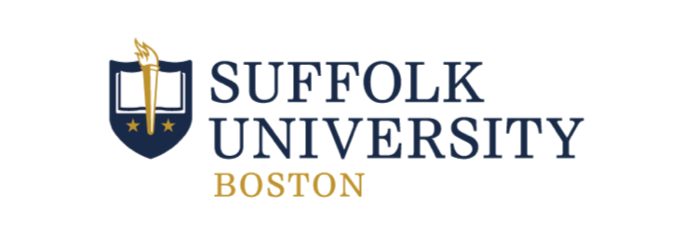According to preLaw Magazine, Boston’s Suffolk Law is ranked among the most innovative legal education providers in the United States, harnessing the power of emerging technologies to produce students who consistently “adapt to changes in the legal industry with cutting-edge legal skills.”
For the sixth consecutive year, the school’s Dispute Resolution program has ranked among the Top 20 institutions by US News and World Report. Suffolk’s Dispute Resolution Center is one of the country’s leading providers of practical mediation and negotiation classroom tools, collaborating with the E.U. and the U.S. Dept. of Justice to create cutting edge materials used by faculty around the country.

Suffolk Law’s IP program is ranked 27th in the nation by US News. Patent lawyers are vital to a technology-based economy like the one in Massachusetts, a globally recognized innovation hub. Suffolk Law leads in meeting that demand, with the most patent law partners in the state’s largest IP practices—more than the next three competing law schools combined. In fact, 30% of the top IP firm patent partners in Greater Boston are Suffolk Law graduates.
Suffolk Law is ranked in four other specialty areas:
- Top 10 Legal Writing Program in US News 2018
- Top 20 Trial Advocacy in US News 2018
- Top 20 Clinical Program in US News 2018
- Top 30 Part-Time Law Program in US News 2018
The school launched the nation’s first legal technology and innovation concentration. The curriculum teaches cutting-edge skills, such as automated document assembly, legal project management, design thinking, knowledge management, and virtual lawyering. Students put this new knowledge into action by building tools that make legal services better, faster, and cheaper.
Students in Suffolk’s Accelerator Program won the American Bar Association’s top honor for innovations. The program teaches students how to build a financially sustainable law practice that serves people of modest means using legal technology and practice management tools to reduce costs.

Starting this spring, Suffolk Law students in the new Legal Innovation and Technology Lab—LIT Lab for short—will be working with practicing attorneys, courts, and legal aid agencies to offer legal tech and data science solutions to vexing legal problems. David Colarusso, a Fastcase 50 legal visionary and nationally recognized expert in legal tech solutions and data science, will direct the new consultancy and R&D shop.
The school’s expert faculty regularly publishes on matters related to the innovation economy, including social media law, and regulation of the sharing economy and cryptocurrency (such as Bitcoin).
Human development happens so fast that we now find ourselves deep in the midst of an age that has been dubbed inherently digital. Artificial Intelligence (AI) is everywhere; inanimate objects evolve into SMART devices, and people are connected to a web of information in gadgets that line their pockets. It is a time that seems less and less reality and increasingly science-fiction, where robot automation is slowly taking over repetitive human roles.
“But there’s definitely a job for the people who are programming, building or fixing the robots,” explains Professor Gabriel Teninbaum, leader of Suffolk’s LIT Institute.
“That’s not a perfect metaphor for the legal field,” he adds, “but the legal market is increasingly driven by technology and process improvement. Recent graduates have a leg up when they’re searching for jobs if they’re comfortable with the technologies that are – and will be – streamlining work in firms and government offices. You don’t need to be a coding expert to understand how legal technology works, and how your firm or agency might use it.”

Vedika Mehera
Vedika Mehera JD ’15 was one of the program’s first participants, putting her experience to use in her position as a legal solutions architect with Seattle-based firm Davis Wright Tremaine LLP. The alumna has recently been assisting in the creation of a tool for clients seeking a convenient means to track their legal spend. “How much money has a client spent on what?” she asks. “I work with the firm’s IT department to make that information easy to digest, easy to visualize and in real-time.”
Clients ask Mehera whether she can bolster workflow without increasing costs. The answers inevitably lie in data analysis technologies, she says. “Clients want an attorney with enough tech and process understanding to conceptualize a solution – not just shake their heads and say, ‘That’s not my area’,” the former student explains.
“We can’t continue to train students like the tech revolution everywhere around us never happened,” says Suffolk Law Dean Andrew Perlman. That’s one of the reasons the school created the LLM in Global Law and Technology in 2002, one of two LLM degrees offered at Suffolk. The LLM in Global Law and Technology was one of the first programs in the US to offer specializations within an LLM degree. Students may earn up to two specializations in Biotechnology and Health Law, Intellectual Property and Information Technology Law, International Law and Business, and US Law and Legal Methods.
“Do students want to work at a Fortune 100 company, a large law firm or a small firm? The government? Do they want a career in public service?” he asks. “No matter what path they choose, they will be better lawyers if they understand both traditional skills as well as the skills that 21st-century lawyers need to be successful.
“That’s the new way, and our students are already driving that change.”
Follow Suffolk Law School on Facebook, Twitter, YouTube, Instagram and LinkedIn











